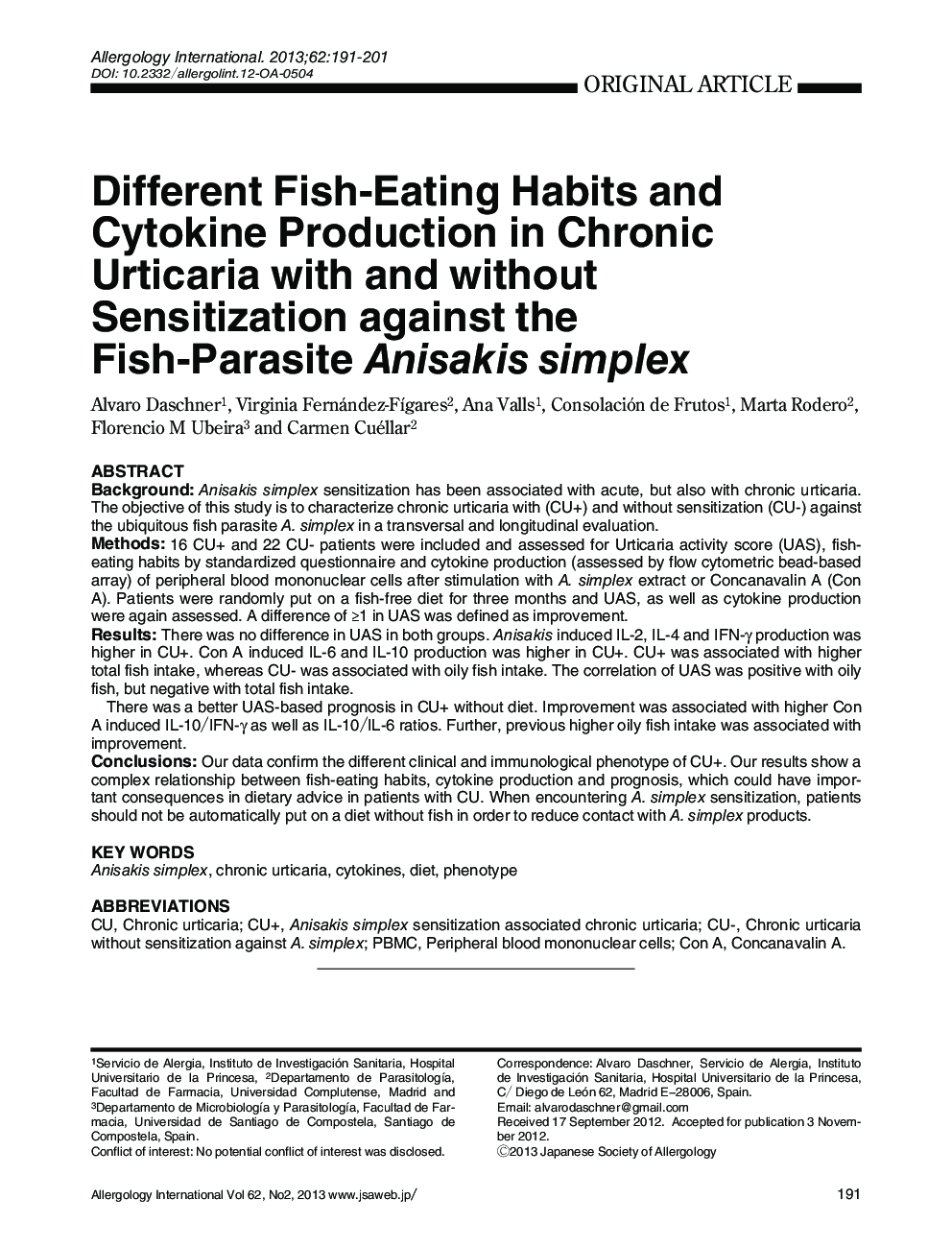| Article ID | Journal | Published Year | Pages | File Type |
|---|---|---|---|---|
| 3340837 | Allergology International | 2013 | 11 Pages |
ABSTRACTBackgroundAnisakis simplex sensitization has been associated with acute, but also with chronic urticaria. The objective of this study is to characterize chronic urticaria with (CU +) and without sensitization (CU-) against the ubiquitous fish parasite A. simplex in a transversal and longitudinal evaluation.Methods16 CU + and 22 CU- patients were included and assessed for Urticaria activity score (UAS), fish-eating habits by standardized questionnaire and cytokine production (assessed by flow cytometric bead-based array) of peripheral blood mononuclear cells after stimulation with A. simplex extract or Concanavalin A (Con A). Patients were randomly put on a fish-free diet for three months and UAS, as well as cytokine production were again assessed. A difference of ≥ 1 in UAS was defined as improvement.ResultsThere was no difference in UAS in both groups. Anisakis induced IL-2, IL-4 and IFN-γ production was higher in CU +. Con A induced IL-6 and IL-10 production was higher in CU +. CU + was associated with higher total fish intake, whereas CU- was associated with oily fish intake. The correlation of UAS was positive with oily fish, but negative with total fish intake.There was a better UAS-based prognosis in CU + without diet. Improvement was associated with higher Con A induced IL-10/IFN-γ as well as IL-10/IL-6 ratios. Further, previous higher oily fish intake was associated with improvement.ConclusionsOur data confirm the different clinical and immunological phenotype of CU +. Our results show a complex relationship between fish-eating habits, cytokine production and prognosis, which could have important consequences in dietary advice in patients with CU. When encountering A. simplex sensitization, patients should not be automatically put on a diet without fish in order to reduce contact with A. simplex products.
